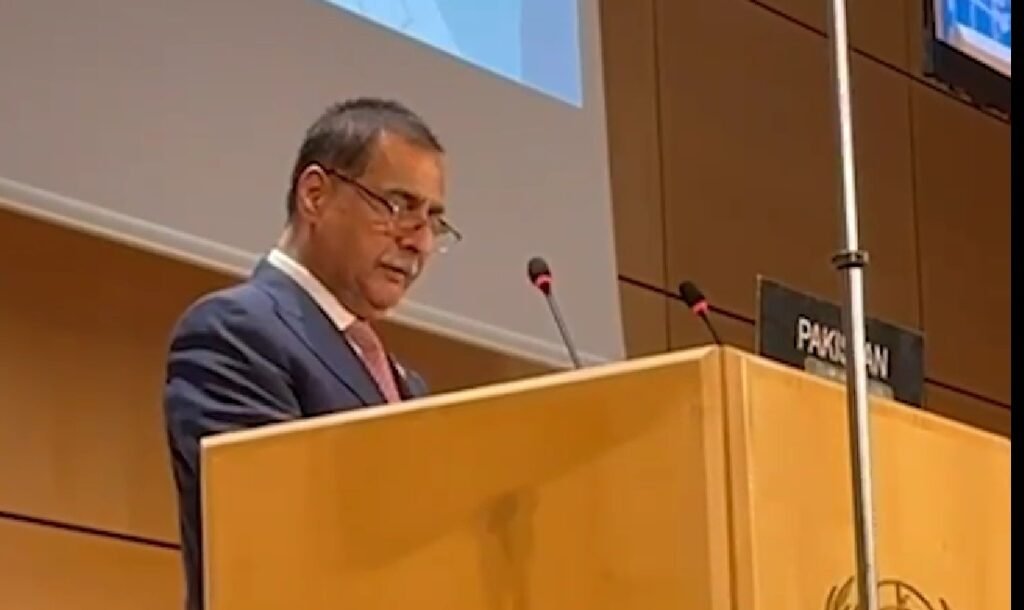
NA Speaker Urges Revival of Multilateralism to Address Global Crises at 6th World Conference of Speakers of Parliament
Geneva : Speaker National Assembly Sardar Ayaz Sadiq has emphasized the urgent need to revive global trust in multilateralism, stressing that the peaceful resolution of long-standing international disputes—particularly in Palestine and Jammu & Kashmir—must be pursued in accordance with the United Nations Security Council resolutions. He asserted that the politicization of humanitarian principles and the application of double standards in international affairs must be brought to an end to safeguard global peace and justice. NA Speaker Sardar Ayaz Sadiq expressed these views while addressing the main session of the 6th World Conference of Speakers of Parliament, jointly organized by the Inter-Parliamentary Union (IPU) and the United Nations, held in Geneva from 29 to 31 July.
Underscoring Geneva’s historic role as the heart of global diplomacy, Speaker Sardar Ayaz Sadiq noted that the city—where the League of Nations was both founded and ultimately failed—serves as a powerful reminder of the consequences of undermining multilateralism through populism, extremism, and narrow nationalism. He stated that the world once again stands at a critical crossroads, confronting multiple interconnected crises that threaten international peace and security, economic stability, sustainable development, and the very integrity of the multilateral system
Speaker Sardar Ayaz Sadiq highlighted the persistence of prolonged foreign occupations, where international law, humanitarian standards, and the fundamental principles of the UN Charter are violated by actors prioritizing hegemonic goals and short-term political gains over global peace. He lamented the erosion of the UN’s credibility due to increasing trends of unilateralism and ultra-nationalism.
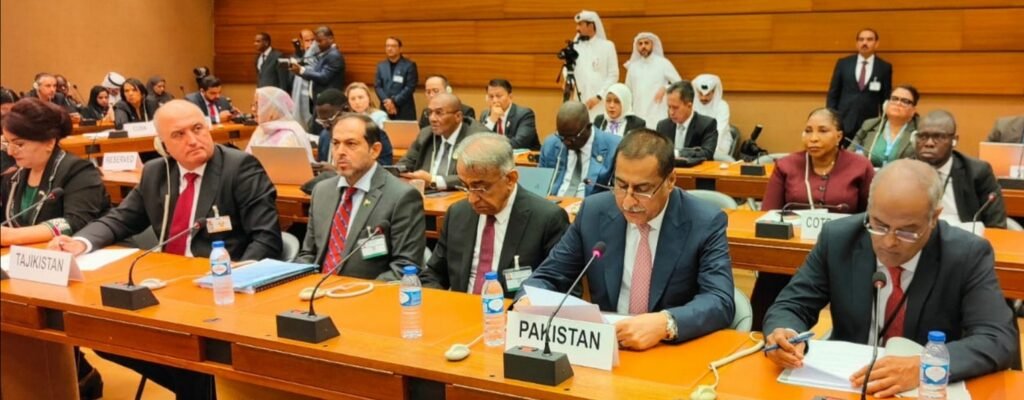
He also stressed that peaceful dispute resolution must now be seen not only as a legal obligation but as a strategic necessity. Coercion and unilateral action, he said, cannot achieve sustainable peace; instead, the world must invest in dialogue, diplomacy, mutual respect, and genuine adherence to the Charter of the United Nations. He commended the recent unanimous adoption of UN Security Council Resolution 2788, under Pakistan’s presidency, which calls for strengthening mechanisms for peaceful dispute settlement—through negotiation, enquiry, mediation, arbitration, conciliation, judicial settlement, and the use of the Secretary-General’s good offices, including engagement with regional and sub-regional organizations.
While addressing the global economic landscape, Speaker Sardar Ayaz Sadiq drew attention to the fact that over 100 developing countries are currently facing debt distress or liquidity crises, largely due to systemic shortcomings in the international trade and financial architecture. He called for urgent reforms to create a more equitable and development-oriented global financial system, one that supports economic resilience, reduces inequality, and facilitates meaningful progress for the Global South.He also underlined the pressing need to reform and revitalize the UN system, particularly the Security Council, to make it more representative, democratic, effective, transparent, and accountable to the full membership of the United Nations. Such reform, he said, is essential to restore legitimacy and ensure that the multilateral system is capable of responding to today’s global challenges. He emphasized that it is time to end the blame game and move toward creating win-win solutions based on shared humanity. “The world has witnessed enough bloodshed,” he said. “It is time for new thinking, time to embrace pluralism, time to respect diversity, and time for a new beginning.”
Sohail Majeed is a Special Correspondent at The Diplomatic Insight. He has twelve plus years of experience in journalism & reporting. He covers International Affairs, Diplomacy, UN, Sports, Climate Change, Economy, Technology, and Health.


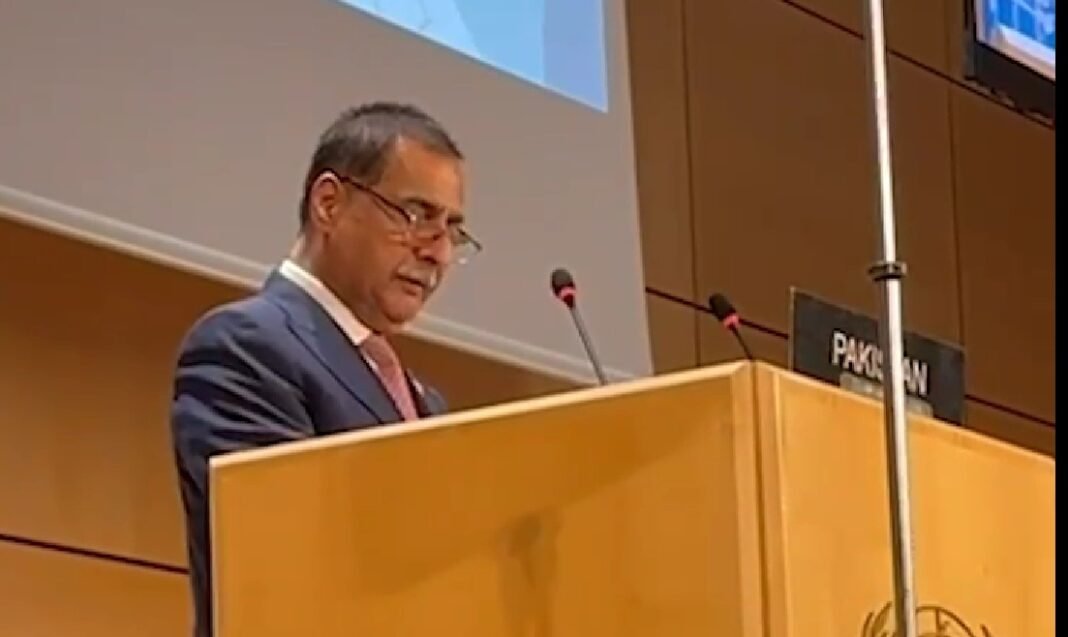

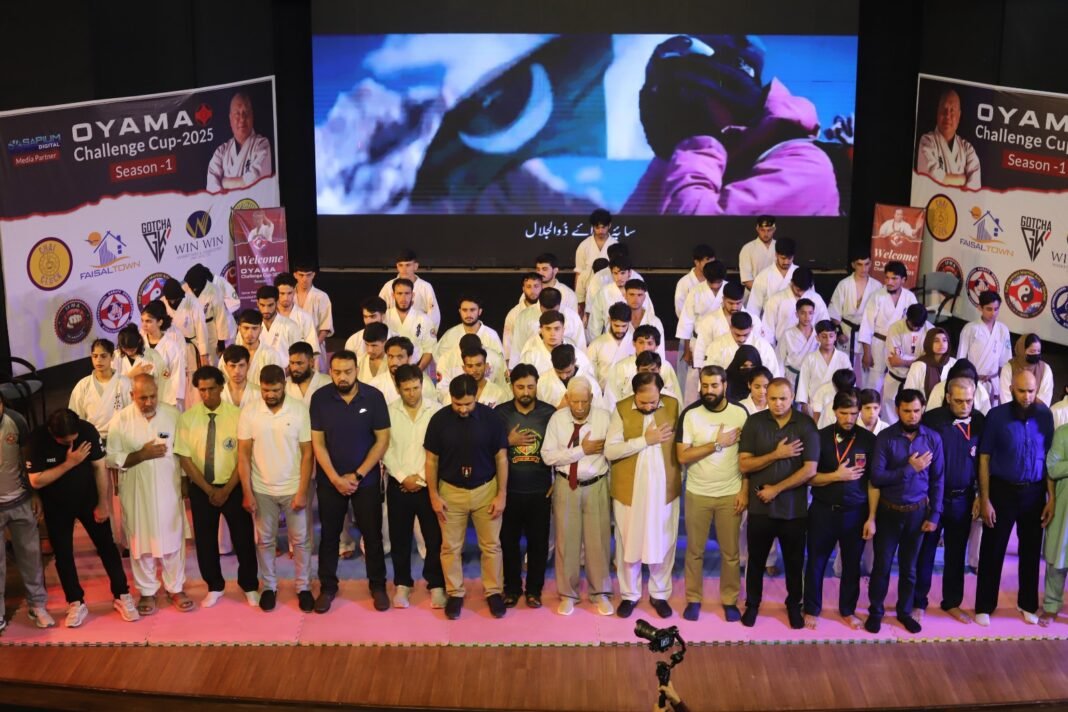
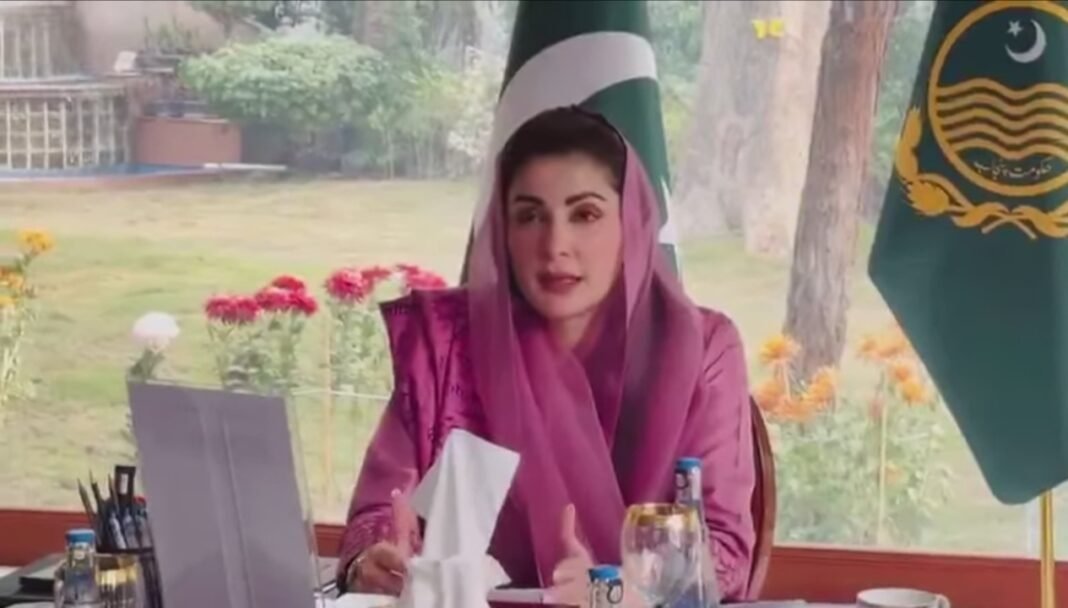
![logo-1[1]](https://globalnewspakistan.com/wp-content/uploads/2025/01/logo-11-e1737618310315-300x187.png)